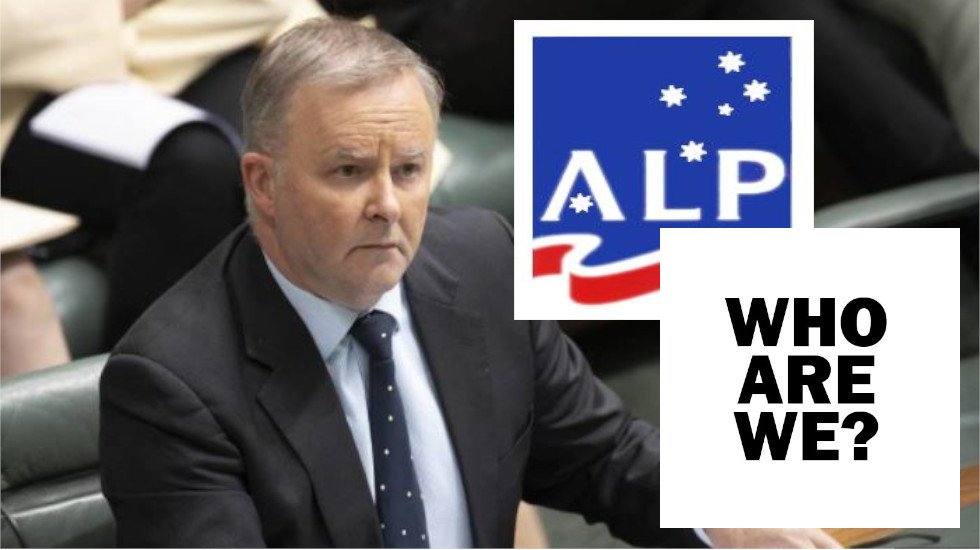Does the ALP really want to be a progressive political party? If the answer is yes, here’s some issues it should be considering.
Here is some gratuitous advice for the ALP as it struggles to understand why Scott Morrison and the Coalition remain significantly more popular than them at the midpoint of this electoral cycle, despite the Government’s well-earned reputation for incompetence and corruption.
I am assuming that Labor wants to be progressive, though I also acknowledge that recent history does not often bear this out. But below are 10 issues to consider.
ONE: The first thing to do is ask yourself what you stand for. “Winning”, by the way, is not the correct answer. That’s the means to an end, not the end itself. What fundamental principles do you hold which are non-negotiable? Spell them out clearly in simple, coherent sentences.
TWO: What are the policies which flow directly from these non-negotiable principles? Policies turn principles into action. They should not be opportunistic, nor must they always be consensus-based. Lead, don’t follow.
Ignore the predictable scare campaigns run by conservative opponents that are inevitable responses to proposals for change.
Remember, they oppose change not because they like to honour traditions and customs, but because they are the chief beneficiaries of the status quo. Be bold, innovative and courageous. This will force your opponents to downplay their own initiatives, assuming they have any, and respond to your agenda.
THREE: Make sure your policies are designed not just to win the next election, but to shift the policy debate for the next few terms.
Take time to develop and refine them. Because electoral cycles in Australia are so short, political parties are reluctant to plan ahead. They spend one year learning the ropes, the following year implementing policies and rest of the time preparing for the next election.
This discourages planning for outcomes beyond the next electoral cycle, encourages short-term governance and produces responses with very limited horizons: this is why the NBN was neutered.
Governments are reluctant to plan for a high speed rail link between Melbourne and Sydney because they won’t be in office to take the credit for it at the opening. This is also a powerful argument for four-year fixed terms, putting the timing of elections beyond the manipulative reach of prime ministers.
FOUR: De-emphasise the issue of leadership and focus on policy debates and advocacy. The popularity of leaders with voters is fickle and not always a requirement for electoral success, as John Howard demonstrated: respect is more important.
Popularity contests between leaders are a distraction from policy advocacy. Listen to party members before interest groups. Mobilise public opinion during the policy development phase, not just after it when decisions look to voters like they are being presented with a fait accompli. Shadow ministerial reshuffles are irrelevant if the policies are wrong.
FIVE: If it takes two terms to successfully win over the voters, so be it. This is still likely to be less than six years. Don’t junk good policy because of poor short- term advocacy. Explain, cost and argue the cases.
Voters correctly sense a lack of principle if policies are dumped after every unsuccessful election. They interpret this as “tell us what you want so you will vote for us” instead of “this is what we believe in and why”.
Never convene focus groups. They demonstrate a lack of confidence in your policies and a preparedness to settle for anything that will get you into office. If you don’t know what people think of your policies without them, you haven’t been listening to the electorate and your principles appear malleable.
SIX: Place less emphasis on opinion management and media opposition. Don’t cede power to private media corporations; they are never true, and at best only fair weather friends of progressive parties.
They will ultimately follow public opinion after attempting to shift it towards their own commercial and class interests. They print news and opinion for profit by selling audiences to advertisers, so they will always support the most pro-business party. Keep them at arm’s length. They will always attack the ABC because it is not beholden to commercial advertisers and is a competitor with significantly higher public credibility.
PLEASE HELP US CONTINUE TO THRIVE BY BECOMING AN OFFICIAL FOOTYOLOGY PATRON. JUST CLICK THIS LINK.
SEVEN: Get rid of candidates who are time-servers and careerists. Progressive politics is about argument and change, not sinecures and pensions.
Just waiting for the electoral cycle to turn in a two-party system is lazy politics and encourages “me-tooism”, discouraging policy innovation and robbing voters of meaningful policy choices.
The electorate is entitled to more than “Tweedledee or Tweedledum”. In the words of marketing, they crave product differentiation. Those who advocate a small target syndrome deserve the ignominy of permanent opposition.
If fear campaigns from the other side spook you into bipartisanship, you are in the wrong game for the wrong reasons. Voters want more than a choice between two factions of the same political party or two spokespeople for the same policy.
And yet today, voters need a powerful microscope to distinguish between the right wing political machine of the New South Wales ALP and moderates within Gladys Berejiklian’s coalition state government. This is the damage that has been wrought by the ideological convergence of the major parties. The only beneficiaries are minor parties and independents.
EIGHT: By all means draw strength and inspiration from it, but keep party history on the back burner and think about new, unprecedented and unpredicted policy challenges facing the country today.
Don’t wallow in the nostalgia of past glories. Voters are focused on the present and the future. They want to be reassured that you have a vision and a plan about the future based on morally defensible and politically-sound principles.
NINE: Give voters a reason to vote for you, not just against your opponents. If you seem indistinguishable from them, elections will be decided on ephemeral issues such as personalities and marketing techniques, not policies.
Reflexive opposition is pointless. Acknowledge common ground if it exists, but don’t remove contentious issues, such as asylum seekers, a republic or the date of Australia Day, from public debate. Avoid the conservative trap which claims that differences and arguments threaten national unity: this is just another defence of the status quo.
Be ready to turn accusations of class warfare and the politics of envy against those who have always prosecuted and benefited from precisely these strategies.
Remember that for conservatives, disparities of wealth and income are normal features of a harmonious society. Although they benefit enormously from public expenditure, right wing elites regard taxation of them and their businesses as theft.
Their stance, however, is fundamentally hypocritical. They decry socialism but never fail to claim their Medicare rebates, use the PBS for their subsidised medications, enjoy taxpayer-subsidised private schools and health insurance, drive on publicly-funded roads, use public hospitals and schools, and many other socialist policies which would no longer exist if they were granted their never-ending calls for tax cuts.
TEN: The policies of the past, even those legislated by your own party, may no longer be relevant now or in the future. Unlike your opponents, who are frightened of change, be flexible and innovative. Learn from the mistakes of other progressive parties around the world.
Clamp down hard on off-shore tax havens, tax loopholes and tax avoidance schemes by transnational corporations (TNCs) and wealthy individuals. These enrichment schemes are only available to the highest income earners, not the PAYG taxpayer.
Defend progressive income taxation and the right of labour to organise. Reduce negative gearing and dividend imputation. Legislate to limit campaign donations and the influence of private lobbyists. Argue for the re-regulation of the financial system before global financial crises become more regular and catastrophic. And seek a more independent foreign policy instead of trotting out interminable odes to the sanctity of the US alliance.
Only governments can ameliorate the effects of climate change (by shifting from fossil fuels to renewable energy sources) and the threats posed by nuclear proliferation and pandemics (including the temporary regulation of social behaviour and the co-ordinated dispensing of vaccines).
Don’t apologise for this or be defensive about it; be ambitious in your goals and targets. The private sector cannot lead in these and many other areas of critical public interest.
And don’t be reluctant to introduce these changes. Make them the agenda. They are in no way radical policies. They are the foundations of a fairer and more equitable society. And that is what you are supposed to stand for.












All of these suggestions are really terrific — in an ideal world with ideal human actors. Sadly, that’s not the world we live in.